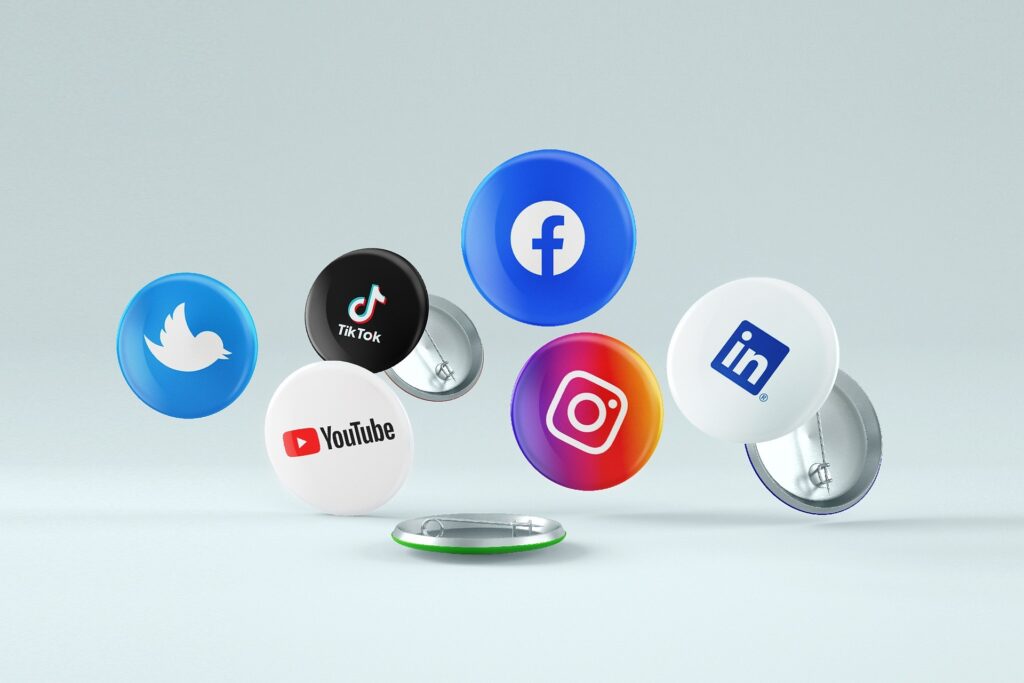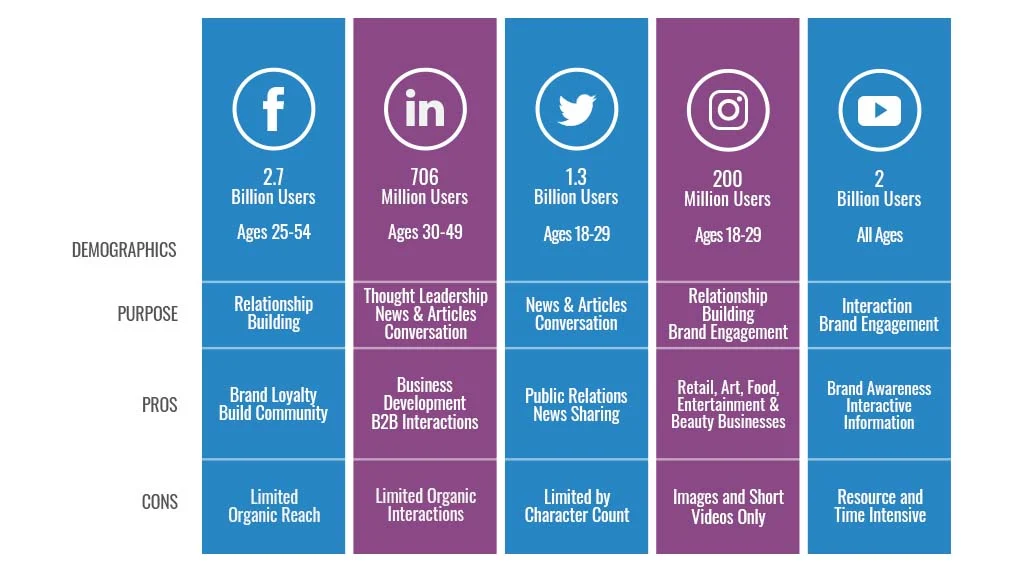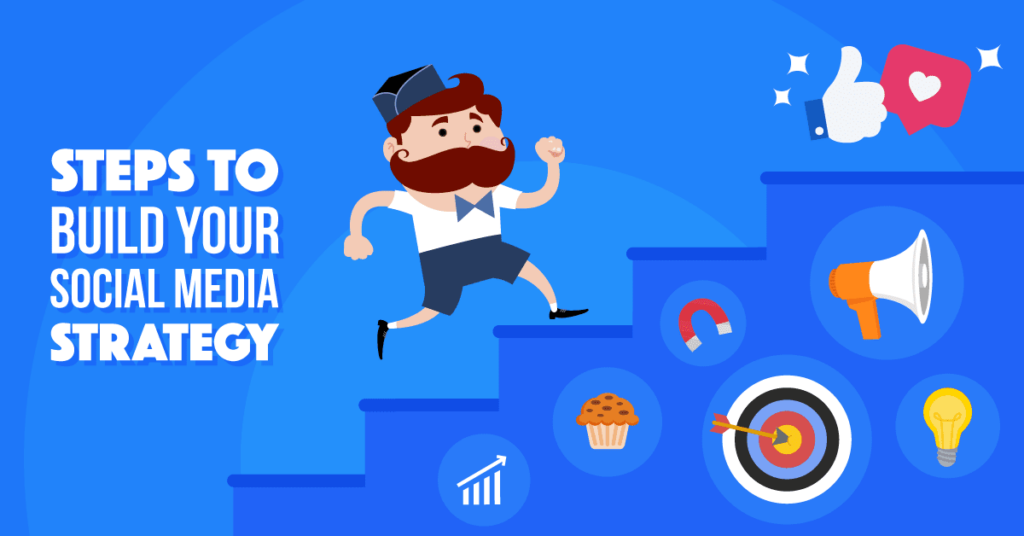In today’s digital-first world, social media has become an indispensable tool for small businesses and startups. It offers an unparalleled opportunity to reach vast audiences with minimal investment, making it a game-changer for those who need to maximize their marketing budget. Social media marketing is not just about posting a few updates; it’s about building an online presence, engaging with customers, and driving growth—all without the need for a hefty advertising budget. For small businesses, social media platforms provide a direct line to customers, allowing for targeted marketing and relationship building at a fraction of the cost of traditional media.
This guide will delve into why social media is so essential for small businesses and startups, how it can help you reach new customers, and how to craft a solid strategy to leverage its full potential.
The Power of Social Media for Small Businesses

Social media is not just for influencers and big brands; it’s a powerful marketing tool for small businesses too. The beauty of social media is that it levels the playing field. Whether you’re a local bakery, an e-commerce startup, or a freelance consultant, platforms like Facebook, Instagram, Twitter, and LinkedIn can help you reach audiences that were once out of reach.
One of the biggest advantages social media offers is the ability to target specific demographics. With advanced targeting features on most platforms, small businesses can tailor their ads and content to specific age groups, locations, interests, and more. This means that even with a modest budget, you can create highly targeted campaigns that yield impressive results.
Case Study: The Success of “Sweet Treats Bakery”
Take Sweet Treats Bakery, a small, family-owned bakery in Denver, Colorado. With a minimal marketing budget, they turned to Instagram and Facebook to connect with their local community. By posting daily pictures of their freshly baked goods, using popular local hashtags, and engaging with followers through polls and giveaways, the bakery grew its Instagram following by over 200% in six months. As a result, foot traffic to their store increased, and they were able to start offering online orders, expanding their reach even further.
Their success demonstrates how powerful social media can be in growing a small business without the need for massive financial investment.
Key Social Media Platforms for Small Businesses

Each social media platform has its unique features, audience, and best-use scenarios. Understanding which platforms work best for your business can help you maximize your impact. Let’s break down the major platforms:
1. Facebook
With over 2.7 billion monthly active users, Facebook remains one of the most popular platforms for small businesses. Its versatile features—including pages, groups, event promotion, and Facebook ads—make it an ideal platform for businesses looking to engage with their local community. Facebook is also an excellent platform for customer service, as businesses can respond to customer inquiries and reviews directly.
Best for: Local businesses, service-based companies, community-driven brands, and e-commerce.
2. Instagram
Instagram is all about visuals. It’s a highly effective platform for businesses in industries like fashion, food, beauty, and fitness, where image-driven content can attract customers. Instagram’s use of Stories, Reels, and Shopping makes it a dynamic platform for engaging with followers and converting them into customers.
Best for: Businesses with strong visual content, B2C companies, and brands targeting younger demographics (ages 18-34).
3. LinkedIn
LinkedIn is the go-to platform for B2B businesses, consultants, and entrepreneurs. It’s a place for networking, thought leadership, and industry-specific content. LinkedIn allows small businesses to connect with other companies, clients, and potential partners.
Best for: B2B (Business to Business) companies, service professionals, consultants, and startups in the tech or financial industries.
4. Twitter
Twitter is a fast-paced platform that’s great for sharing quick updates, joining trending conversations, and connecting with influencers. It’s ideal for businesses that want to stay relevant, promote events, or share news in real-time.
Best for: Tech startups, media companies, event-based businesses, and brands focused on customer service and engagement.
Social Media Tips for Small Businesses

While each platform has its strengths, the key to social media success for small businesses is consistency, engagement, and measurement. Here are some actionable tips to get you started:
1. Post Regularly
Consistency is key to staying top of mind with your audience. Aim to post content at least a few times a week, but don’t overdo it—quality matters more than quantity. Develop a content calendar to plan your posts in advance, ensuring a mix of promotional, educational, and engaging content.
2. Use Hashtags Wisely
Hashtags help your posts get discovered by a wider audience. Research relevant hashtags that your target audience follows, and incorporate them into your posts. Don’t just use popular hashtags—be sure to include niche or local hashtags that will help you reach the right people.
3. Engage with Followers
Social media is a two-way street. It’s not enough to just post content—you need to actively engage with your followers. Respond to comments, like and share posts from customers, and join conversations. This helps build relationships and trust with your audience.
4. Monitor Metrics
Every platform offers analytics tools that provide valuable insights into how your posts are performing. Track metrics such as engagement rate, click-through rate, and conversions to measure the effectiveness of your efforts. Adjust your strategy based on what works and what doesn’t.
Building a Social Media Strategy

Creating a social media strategy involves more than just posting regularly—it’s about setting clear goals, understanding your audience, and measuring your success. Here’s a step-by-step approach to building your strategy:
1. Define Your Goals
What do you want to achieve with social media? Your goals could be to increase brand awareness, drive traffic to your website, or generate sales. Clearly define what success looks like so you can measure your progress.
2. Understand Your Audience
Identify who your target customers are. What are their pain points, interests, and behaviors? Understanding your audience will help you tailor your content and messaging to resonate with them.
3. Create a Content Plan
Plan the type of content you will post. Will you focus on promotional content, educational posts, behind-the-scenes looks, or customer testimonials? Mix it up, and make sure it aligns with your goals and audience.
4. Set a Budget
Social media marketing can be cost-effective, but it’s important to set a budget for paid advertising, content creation, and tools (like scheduling software or analytics tools). Even a small budget can go a long way if you’re strategic with it.
5. Monitor and Optimize
Your social media strategy isn’t set in stone. Monitor your performance, analyze your metrics, and adjust your approach as needed. Social media trends and algorithms change frequently, so be flexible and open to new strategies.
The ROI of Social Media Marketing for Small Businesses
One of the biggest challenges small businesses face is demonstrating the return on investment (ROI) of their social media efforts. But with the right tools and strategy, measuring success is easier than you think.
1. Google Analytics
Google Analytics allows you to track website traffic coming from social media platforms. By setting up UTM parameters in your links, you can see which posts or ads are driving visitors to your site and how they are interacting with your content.
2. Social Media Insights
Each social media platform offers built-in analytics that show how your posts are performing. For example, Facebook Insights provides data on engagement, reach, and demographics. Use this information to fine-tune your strategy.
3. Customer Feedback
Don’t forget to listen to your customers. Pay attention to comments, messages, and reviews on social media. Customer feedback can give you valuable insights into what’s working and where you need to improve.
4. Conversions and Sales
Ultimately, the goal of social media marketing is to drive business growth. Track conversions by setting up goals in Google Analytics or using conversion tracking pixels in Facebook and Instagram ads. This will help you see which social media efforts are translating into sales.
Conclusion

Social media marketing is an essential tool for small businesses and startups. It offers the potential to reach a large audience with a low investment, making it an ideal platform for businesses with limited resources. By selecting the right platforms, crafting a solid strategy, and consistently engaging with your audience, you can grow your brand, build meaningful relationships with customers, and ultimately increase sales.
Now that you know how to make the most of social media marketing, it’s time to take action. Start by defining your goals, choosing your platforms, and developing your content plan. Don’t wait—your customers are already online, and social media is waiting for you to make an impact. Start implementing these strategies today and watch your small business thrive in the digital age!